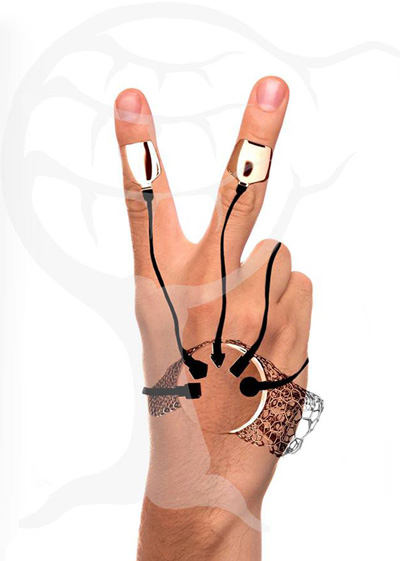Perhaps everyone has seen people who communicate via signs, gestures and mimics in the street, café, subway… Most of us fail to comprehend this language and this turns into a barrier for communication between people. A student programming team of the Faculty in Mathematics from Sofia University comes to help here: the young scientists have created a piece of appliance, giving a chance to hearing-impaired persons to communicate with words. Data of the World Health Organization says that there are around 360 mln. people with such problems worldwide. The Bulgarian innovation team consists of 8 people who have the ambition to launch their product on the international market, helping millions. The thing is a bracelet which translates, in a way, sign language to speech and vice versa, thanks to a smartphone. Student and head of the project Oleg Kamenshtik tells us more about it:

The team is now working on the device’s minimization, in order for the latter to be as elegant as possible, convenient for usage and fitting in our pocket. The young people have been funding their project on their own for thetime being. They have recently won the second prize at Hackathon – a tech race for software projects development, or EUR 2,500 in prize money. The audience also applauded them. More from Oleg:
“About the idea itself – it wasn’t that romantic: we were sitting in a café and the people around the table next to ours used the sign language. We didn’t understand anything. After a research which showed no appliance suitable for the purpose on the market, despite the numerous concepts, we decided to create a glove. However, then we reconsidered that these people already have the inner feeling of being different and a glove would outline them even more. Then we opted for something small enough to be attached to the palm – a clip which is not recognizable. We wanted to gather the largest community possible around this project, to alarm people for this serious problem. At the moment we are working with virtual reality.”

The young people face challenges for sure. Here are the major ones:
“One of the main problems is how to turn a gesture into a mathematic model. It looks easy at first – seize the gesture and transform it, great! However, there too few researches in this area, we have to find lots of things on our own. The sign language itself is the other issue – the Bulgarian version has nearly 7,600 gestures and each country has its own sample. At the moment we are doing a research on the most effective algorithms. We need to be sure that the hearing-impaired community will be willing to use such a device,” Oleg says.
This is also the main thing that the young innovators wish for themselves: the product to reach the community and to be of use. They will see this as their greatest reward, bringing sense to all their sleepless nights and failures along the path.
English version: Zhivko Stanchev
This evening, at 6pm, a prayer service will be held in the courtyard of the Great Basilica, followed by a festive concert dedicated to the 1160th anniversary of the baptism of the Bulgarian people and the 1170th anniversary of the creation of the..
International Labor Day on May 1 in the mass consciousness of Bulgarians is often associated with the period of socialism and the grandiose demonstrations that the older generation of Bulgarians remembers well. However, it has much deeper roots. Its..
Digital nomadism, a lifestyle where people choose remote work so they can travel and live in different environments, is becoming a phenomenon on the way to overturn our ideas about work and way of life. In this regard, Bulgaria offers a palette of..
Only on the Day of Bravery and Holiday of the Bulgarian Army (May 6), we will provide our visitors with the opportunity to enter three..
According to Bulgarian Orthodox tradition, it is customary on major Christian feast days to make a voluntary offering known as kurban. In general, this..

+359 2 9336 661
